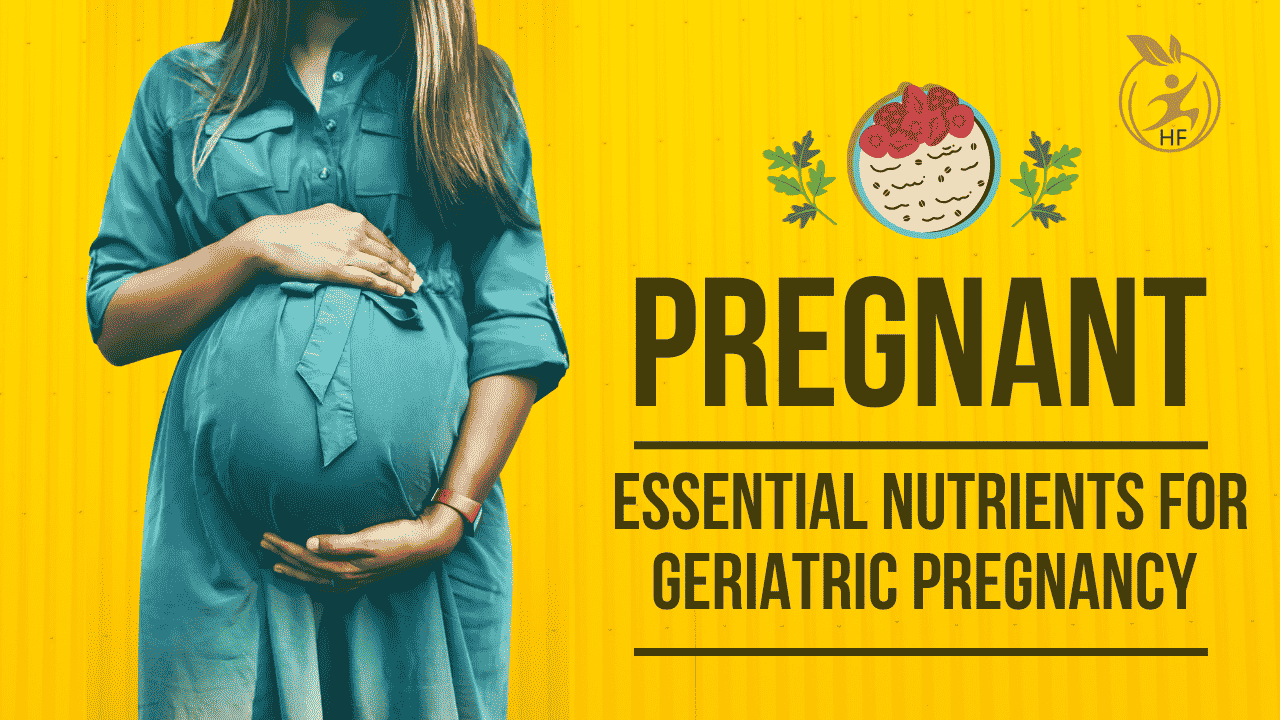Geriatric pregnancy, defined as conception in women aged 35 and over, presents a unique combination of factors and problems, including nutrition and dietary habits. Mindful eating, a technique that emphasizes mindfulness and intentionality in food consumption, can be especially beneficial during this transitional period. In this comprehensive book, we look at the ideas of mindful eating and offer practical techniques for supporting the nutritional needs and overall well-being of pregnant moms in geriatric pregnancy.
Understanding Mindful Eating:
Mindful eating encourages a nonjudgmental attitude toward food and eating, resulting in a healthier connection with food and a greater sense of overall contentment.
Benefits of Mindful Eating During Geriatric Pregnancy:
For women navigating the journey of geriatric pregnancy, practicing mindful eating can offer numerous benefits for both physical and emotional well-being:
Enhanced Nutritional Intake:
Conscious eating encourages a deeper appreciation for the nutritional value of foods, leading to more balanced and nourishing dietary choices. By focusing on nutrient-dense foods rich in essential vitamins and minerals, expectant mothers can better support their own health and the healthy development of their baby.
Management of Food Aversions and Cravings:
By approaching cravings with curiosity and without judgment, women can make empowered choices that honor their nutritional needs while satisfying their cravings in a balanced way.
Reduction of Stress and Anxiety:
Pregnancy, especially in older women, can be accompanied by heightened levels of stress and anxiety. Mindful eating practices, such as mindful breathing and mindful chewing, can promote relaxation and reduce stress levels during meals, creating a more peaceful and enjoyable eating experience.
Prevention of Excessive Weight Gain:
Mindful eating encourages listening to the body’s natural cues of hunger and fullness, which can help prevent overeating and excessive weight gain during pregnancy. By fostering a mindful awareness of portion sizes and eating pace, expectant mothers can maintain a healthy weight throughout pregnancy while still meeting their nutritional needs.
Connection with Baby:
Mindful eating provides an opportunity for expectant mothers to connect with their baby on a deeper level by acknowledging the nourishment and energy that food provides for both themselves and their developing child. Cultivating this sense of connection can foster a profound sense of maternal bonding and emotional well-being.
Practical Strategies for Mindful Eating in Geriatric Pregnancy:
Incorporating mindful eating practices into daily life during geriatric pregnancy doesn’t have to be complicated.
Here are some simple yet effective strategies to cultivate mindfulness around food and eating:
Practice Conscious Meal Preparation:
Approach meal preparation with mindfulness by engaging all your senses. Notice the colors, textures, and aromas of the ingredients as you cook, fostering a sense of appreciation for the nourishing foods you’re preparing.
Create a Calm Eating Environment:
Designate a peaceful and distraction-free space for meals, free from electronic devices or other distractions. Create a tranquil ambiance with soft lighting and soothing music to promote relaxation and enjoyment during meals.
Engage in Mindful Eating Rituals:
Before eating, take a moment to pause and express gratitude for the food in front of you. Consider the journey of the food from farm to table, appreciating the effort and resources that went into its production.
Tune into Hunger and Fullness Cues:
Listen to your body’s signals of hunger and fullness throughout the meal. Eat slowly and mindfully, pausing between bites to check in with your level of satisfaction. Aim to stop eating when you feel comfortably full, rather than overly stuffed.
Savor Each Bite:
Take the time to truly savor the flavors and textures of the food you’re eating. Chew slowly and mindfully, paying attention to the sensations of taste, smell, and texture. Notice how each bite makes you feel physically and emotionally.
Practice Mindful Breathing:
Incorporate mindful breathing exercises into your mealtime routine to promote relaxation and presence. Take a few deep breaths before eating to center yourself and calm any pre-meal stress or anxiety.
Stay Curious and Non-Judgmental:
Approach food and eating with a sense of curiosity and openness, free from self-criticism or judgment. If you experience cravings or indulge in occasional treats, do so with mindfulness and self-compassion, without guilt or shame.
Embracing mindful eating practices can empower expectant mothers in geriatric pregnancy to cultivate a deeper connection with their bodies, their food, and their growing baby. By integrating mindfulness into their approach to food and eating, women can nourish themselves and their baby with intentionality, gratitude, and joy, fostering a healthier and more fulfilling pregnancy journey. As they embrace the principles of mindful eating, expectant mothers can savor each moment of this precious time and lay the foundation for a lifetime of mindful nourishment and well-being.








